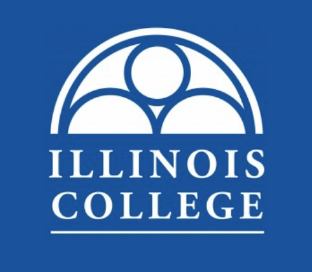PH 115 Introduction to Logic and Critical Thinking (4)
An examination of informal and formal logic. Topics considered include the distinction between inductive and deductive reasoning, material fallacies of reasoning, disputes, definition, classification, causal reasoning, analogical arguments, syllogistic arguments, and arguments utilizing truth-functional propositions.
PH 135 Philosophy in the Ancient World (4)
A survey, based upon primary texts, of western philosophical thought from its origin in ancient Greece to the height of the Roman Empire. Theories of ethics will be emphasized. Major philosophers and schools of thought to be studied include Plato and Aristotle as well as the Epicureans, Stoics, and Skeptics.
PH 145 Philosophy in the Medieval World (4)
A survey, based upon primary texts, of western philosophical thought from the fall of the Roman Empire to the beginning of the Renaissance. Theories of ethics will be emphasized. Major philosophers from the Jewish, Christian, and Islamic traditions will be studied, such as Saadia Gaon, Moses Maimonides, Boethius, Aquinas, Avicenna, and Averroes.
PH 155 Philosophy in the Modern World (4)
A survey, based upon primary texts, of western philosophical thought from the Renaissance through Kant. Theories of ethics will be emphasized. Major philosophers to be studied include Hume, Mill, and Kant.
PH 170 Philosophy of Mind (4)
As the scientific study of the human mind, psychology arose from philosophy. In this course, we will study the historical background and current broader context for psychology by examining philosophical views of the human mind. We will focus on (1) the nature of the self, including the mind-body problem and personal identity, (2) the self’s ways of knowing and communicating, including sensation, perception, imagination, understanding, thinking, and language, and (3) the self’s awareness, that is, consciousness. What is the human mind? How does the human mind know? What does human language reveal about the human mind? What is human consciousness? These are the primary questions we will consider in reading traditional and recent works in philosophy of mind.
PH 175 Philosophy of Science (4)
A course not to do science, but to talk about science from the perspective of philosophy. Students will first consider what science is and the nature of the scientific method, including inductivism and falsificationism. After discussing scientific literary among Americans, we will examine scientific epistemology, including scientific observation and measurement, experiments, realism and anti-realism, hypotheses, theories, explanations (including the covering law, causal, pragmatic, unification, and information models), evidence and confirmation, and the unity of science and reductionism. This will be followed by an examination of scientific change that will focus, in particular, on paradigm shifts and research programs. Finally, we will discuss the interaction between science, on the one hand, and values, religion, and society, on the other.
PH 185 Philosophy of Sport (4)
In this course, we will use philosophy to examine the nature and moral dimension of sport and, in particular, sport in the United States of America. We will begin by defining “sport” and studying some basic philosophical theories of ethics. We will then use those theories to examine issues in American sports.
PH 216 Computer Ethics (4)
An introduction to the ethical theories needed to examine various ethical issues in computing such as privacy, security, reliability, responsibility, intellectual property, and freedom of expression. Examples illustrating important concepts are drawn from both the past and current media. A brief history and overview of computing is provided so that prerequisite courses in computer science are not needed other than familiarity with current popular applications software.
PH 265 God, Suffering and Evil (4)
(See RE 265.)
PH 304 Philosophy of Religion (4)
An examination of the nature of faith, its relation to reason, the nature and knowledge of God, and the problem of evil. Taught through discussions of classical readings in thinkers such as Augustine, Anselm, Aquinas, and Hume. (See RE 304.)
PH 315 Business Ethics (4)
Consideration of the problem of determining the rules which should govern the relationship between industry and government, a company and its customers, and management and employees. (See MG 315.)
PH 324 Survey of Political Philosophy (4)
Discussion of classical readings from the social, moral, and political tradition of the Western world, leading to an examination of recent issues in political philosophy. (See PO 324.)
PH 370 Process Theology and Philosophy (4)
(See RE 370.)
PH 461, 462 Independent Study in Philosophy (1 - 4)
PH 463, 464 Internship in Philosophy (1 - 4)
PH 465, 466 Independent Research in Philosophy (1 - 4)


